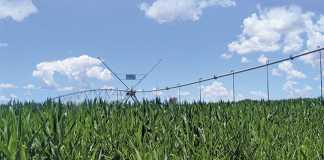
The report provides a framework for unlocking the key role of nature in harnessing opportunities and the long-term, sustainable growth of a biodiversity economy.
“The AWF is pleased to have partnered with the ministry to produce the report, which not only sets a baseline on the value and contribution of nature, but also identifies viable business and investment opportunities through which Zimbabwe can unlock the enormous potential value in its rich biodiversity,” AWF Zimbabwe director Olivia Mufute said.
Acting secretary in the ministry Tariro Musonza said at the launch of the report in Harare: “The legal and policy frameworks [in the report] seek to create an enabling environment for natural resources conservation and sustainable use. These processes will no doubt enhance Zimbabwe’s biodiversity economy.”
The AWF said on its website that conservation intervention was critical to ensuring Zimbabwe’s natural resources persisted for generations to come. The country, for instance, at one time was covered by an abundance of forests and wildlife and was recognised as a leading destination for wildlife-based tourism.
However, political instability, major droughts, poverty, a growing population, and a lack of fuel have all led to massive deforestation. This, in turn, resulted in soil erosion and the destruction of destroying of some fertile farming land.
Dr Hendrik Smith, a conservation agriculture expert and CEO of Asset Research, pointed out that regenerative agriculture principles in farming operations was the biggest investment that Southern African farmers could make in the health of the planet.
“Regenerative agriculture principles are aimed at improving biodiversity and water-use efficiency, while combating climate change,” Smith said.













